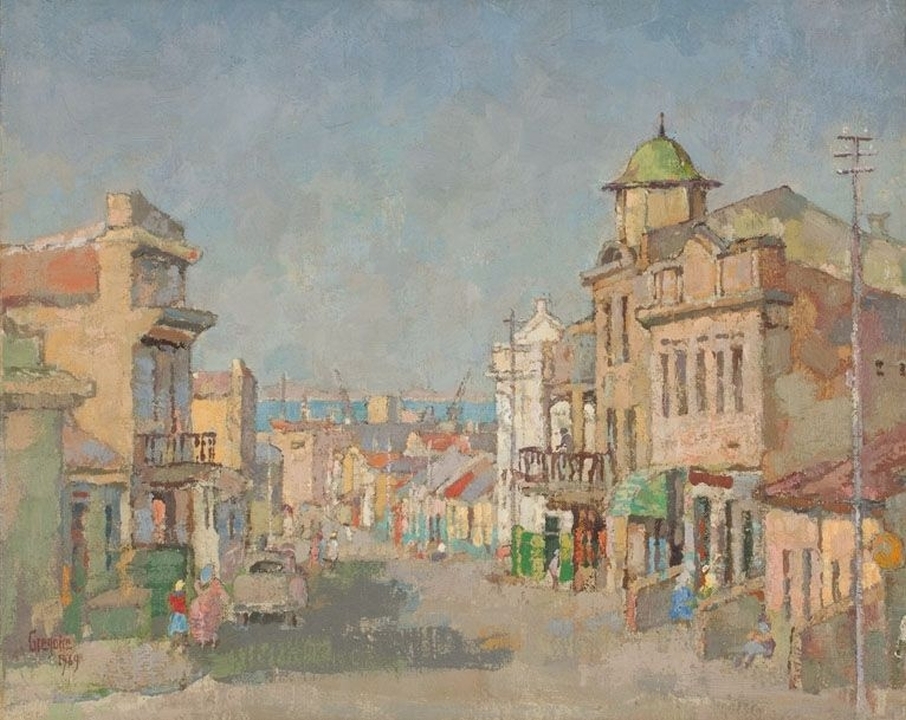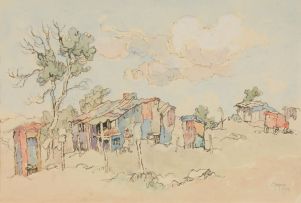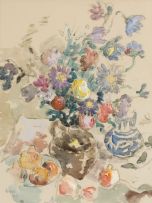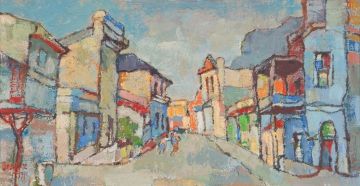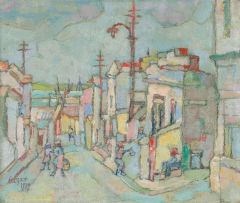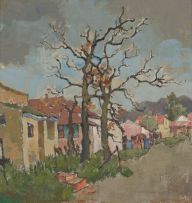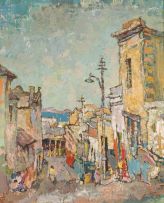Important South African Art
Live Auction, 16 May 2011
Session Two
Incl. Buyer's Premium & VAT
About this Item
signed and dated 1969; signed and inscribed with the title on the reverse
Notes
In the following statement Gregoire Boonzaier sums up what so captivated him about the Cape and led to his unfailing love of painting its many scenes and characters:
Even as a child I found old Cape Town an exotic place. It has a unique quality found in no other city in our country. It is rich in colour; colour which is present in its typical Cape cottages, in its roof, walls, windows and doors. The striking street life has always fascinated me: pushcarts, vegetable carts, fish carts, laundry gaily fluttering in the breeze and, in the good old days, goats and chickens, as well as a plethora of cats and mongrels of uncertain extraction. All these things made the street come to life. The cries of the hawkers, and the smells: fish and incense, curry and other spices. What an atmosphere found in those alleys, playground to jolly bands of mischievous, noisy and inquisitive urchins!
There one finds the Malays with their fezzes, and the women with their colourful headdresses. Over all this, the minarets of a dozen mosques where the Imam's cry daily summons the faithful. Indeed, a place with a special character. The urge to capture it on canvas has never left me.i
In this view of District Six, the old buildings on either side of the street lead the eye down to the harbour with its busy cranes and over Table Bay to the Blaauwberg Mountains beyond. The scene is painted in Gregoire's characteristic style, influenced as much by the Post-Impressionists as it was by Pieter Wenning, who was so staunchly supported by Gregoire's father D C Boonzaier and who made a considerable impact on the young artist.
i Die Huisgenoot, 11 February, 1972, quoted in Martin Bekker, Gregoire Boonzaier, Human & Rousseau, Cape Town and Pretoria, 1990, pages 35-40.
cf. Martin Bekker, Gregoire Boonzaier, Human and Rousseau, Cape Town and Pretoria, 1990, page 38.
